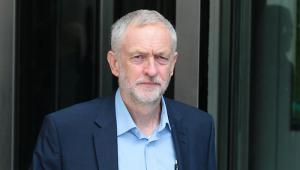The think-tank today issued an analysis of the public sector pay proposals from the Tory, Labour and Liberal Democrat manifestos for the 2017 general election.
Jonathan Cribb, senior research economist at the IFS, said the policies of these parties “differ significantly” as recruitment and retention problems have begun to emerge in the public sector after years of public pay restraint.
Public sector pay has risen by just 1% per year every year since 2013-14, below inflation. There were also freezes for all but the lowest paid public sector workers in 2011-12 and 2012-13.
There have been warnings that rising inflation was leading to a squeeze in workers’ pay especially among public sector employees.
Cribb added: “The Conservatives’ plan of 1% increases for the next two years risks exacerbating recruitment problems – and ultimately reducing the quality of public services – as public pay growth would fall markedly behind growth in private sector pay.
“Labour’s plans to return to the recommendations of Pay Review Bodies would boost public sector pay but require significant extra resources (around £9bn per year in 2021-22) for government departments to pay for the higher wage costs, unless departments make cuts elsewhere.”
He added that the LibDem plans would imply public pay increases larger than the under the Conservatives but smaller than under Labour.
According to the IFS increasing public sector pay would boost the earnings of the 5.1 million public sector workers, 1.6 million (31%) of whom work for the NHS, and 1.5 million (30%) who work in education in the public sector.
The think-tank notes that public sector pay rose compared to private sector pay during and after the 2008 recession, as private sector earnings fell sharply in real terms.
But since 2011 the pay restraint has led to the difference between public and private sector pay returning to its pre-crisis level leading to the aforementioned issues with staff retention and recruitment.
Under current Conservative plans the difference between public and private wages would fall to a level not seen in (at least) the last 20 years, the IFS said.
However, Labour’s plans would see the difference stabilise around the level seen in the mid 2000s while the Lib Dem plans would be below the level seen in the early 2000s, when there were significant shortages of nurses.
Today’s report states: “This analysis shows there are tradeoffs in delivering public services. Increasing public sector pay involves large increases in costs for government departments.
"However, if public sector pay continues to fall compared to pay in the private sector, the public sector will struggle to recruit and retain the workers it needs to deliver public services, and the quality of those services will therefore be at risk.”
The launch of each of the three main party manifestos follows the release of a report by NHS Providers which showed that some staff were quitting their jobs for higher paid jobs stacking shelves in supermarkets as pay squeezes continued.
Responding to the IFS analysis, the GMB union, said current government plans to have a 1% pay cap for public service workers until 2020 would result in those 5 million individuals being £3,000 worse off on average.
Rehena Azam, GMB national secretary for public services, said: “Theresa May talks about helping ordinary working families, but her manifesto will do nothing to help over five million public sector employees.
“Enough is enough - it's time that nurses, teaching assistants, council staff and all other public sector workers got the real pay rise they need and deserve."
UNISON general secretary, Dave Prentis, said public sector recruitment was hovering "on the brink of crisis".
He said: "Any new government must not hold down public sector pay at the expense of experienced and loyal staff delivering vital public services."



















